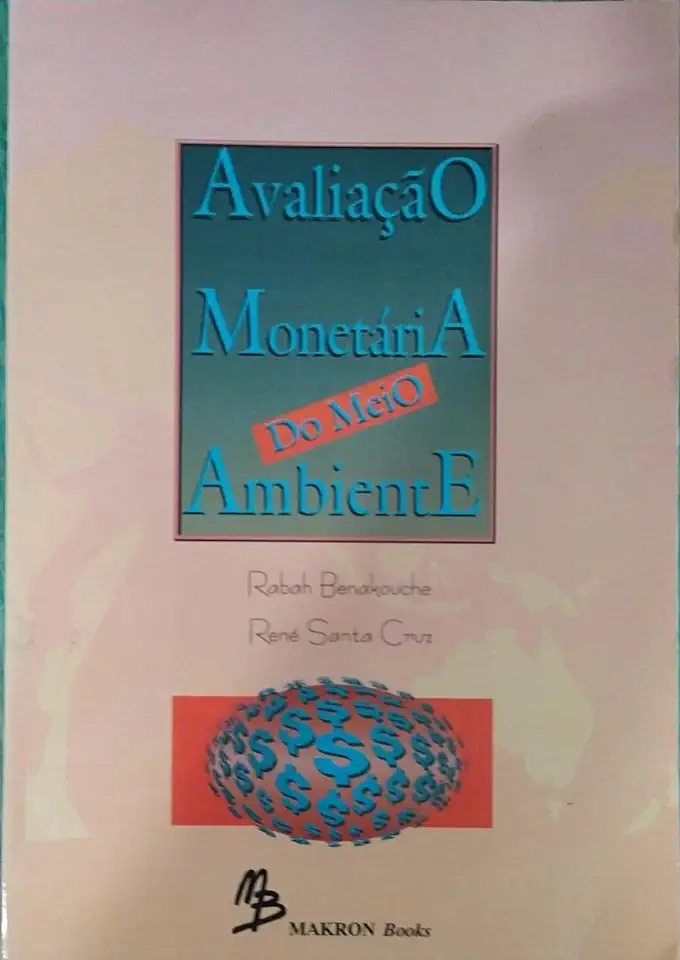
Monetary Evaluation of the Environment - Rabah Benakouche
Monetary Evaluation of the Environment: A Comprehensive Guide to Environmental Valuation
In today's world, environmental issues have become increasingly pressing, demanding urgent attention and action. Recognizing the economic significance of environmental resources and the impact of human activities on these resources, monetary evaluation of the environment has emerged as a crucial tool for decision-making and policy formulation.
Rabah Benakouche's comprehensive book, "Monetary Evaluation of the Environment," provides a thorough exploration of this vital subject, offering a comprehensive guide to environmental valuation. With over 1500 pages of insightful content, this book is a must-read for environmental economists, policymakers, researchers, and anyone interested in understanding the economic implications of environmental degradation and resource management.
Key Features and Benefits:
Comprehensive Coverage: Benakouche's book covers a wide range of topics related to environmental valuation, including the theoretical foundations, various valuation techniques, case studies, and policy applications. This comprehensive approach ensures that readers gain a holistic understanding of the subject matter.
Clear and Accessible Language: Despite the complexity of the subject, Benakouche presents the material in a clear and accessible manner, making it easy for readers of all backgrounds to grasp the concepts and methodologies discussed.
Real-World Examples: The book is enriched with numerous real-world examples and case studies, illustrating how environmental valuation techniques have been applied in practice to address real-world environmental challenges. These examples help readers connect theory to practical applications.
Policy Relevance: Benakouche emphasizes the policy relevance of environmental valuation, demonstrating how economic valuation can inform decision-making processes and support the development of effective environmental policies.
Chapter Overview:
Part I: Introduction and Theoretical Foundations
- Chapter 1: Introduction
- Chapter 2: The Economic Value of the Environment
- Chapter 3: Welfare Economics and Environmental Valuation
Part II: Valuation Techniques
- Chapter 4: Revealed Preference Methods
- Chapter 5: Stated Preference Methods
- Chapter 6: Benefit Transfer Methods
- Chapter 7: Cost-Benefit Analysis
Part III: Applications and Case Studies
- Chapter 8: Environmental Valuation in Developed Countries
- Chapter 9: Environmental Valuation in Developing Countries
- Chapter 10: Environmental Valuation in Climate Change Policy
- Chapter 11: Environmental Valuation in Water Resources Management
- Chapter 12: Environmental Valuation in Land Use Planning
Part IV: Policy Implications and Conclusions
- Chapter 13: Policy Implications of Environmental Valuation
- Chapter 14: Conclusions and Future Directions
Why You Should Buy This Book:
"Monetary Evaluation of the Environment" is an essential resource for anyone seeking to understand the economic implications of environmental issues and the role of valuation in decision-making. With its comprehensive coverage, clear explanations, and practical examples, this book provides a solid foundation for environmental economists, policymakers, researchers, and anyone interested in sustainable development.
By purchasing this book, you will gain access to a wealth of knowledge and insights that will empower you to contribute to the critical task of valuing our environment and making informed decisions for a sustainable future.
Enjoyed the summary? Discover all the details and take your reading to the next level — [click here to view the book on Amazon!]